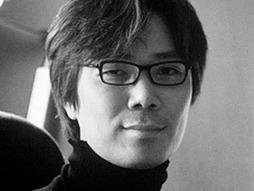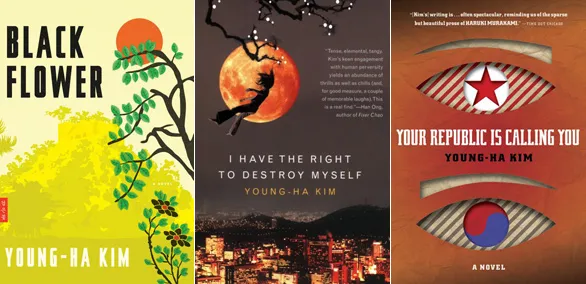Kim Young-ha is regarded as one of the most influential voices in contemporary Korean literature—an author whose works have traveled far beyond national borders and into the hands of readers around the world. Known for his psychological insight, innovative style, and fearless exploration of the human condition, Kim has transformed the landscape of modern Korean fiction and introduced global audiences to a new dimension of storytelling.
Born in 1968 in Hwacheon, Gangwon Province, Kim spent most of his childhood moving from one city to another due to his father’s career in the military. This constant relocation meant he was always meeting new people, leaving old places behind, and adjusting to unfamiliar environments. Later in life, he often mentioned that these experiences shaped his understanding of identity, memory, and emotional dislocation—themes that appear again and again in his writing.

Although he initially studied Business Administration at Yonsei University, Kim quickly realized that his real passion lay in storytelling, not spreadsheets. After university, he committed himself to writing, and his talent was recognized immediately. His debut novel, I Have the Right to Destroy Myself, published in 1996, shocked and fascinated the country. Dark, poetic, and profoundly philosophical, the novel explored human desire, death, and art through a narrator who assists others in ending their lives. The book won the prestigious Dong-in Literary Award, cementing Kim’s place as a bold and unconventional literary force. It also attracted international attention and was translated into multiple languages, allowing readers worldwide to experience the raw emotional power of his prose.
Throughout his career, Kim Young-ha has continued to write stories that challenge readers to think deeply about who they are and why they exist. He often focuses on ordinary individuals who are quietly struggling beneath the surface—people caught between loneliness, memory, and the pressures of modern society. His characters are rarely heroes; instead, they are human, flawed, frightened, passionate, and painfully real. In each novel, he blends suspense, psychological tension, and philosophical reflection, creating narratives that stay with readers long after the final page.
Among his well-known works, Your Republic Is Calling You tells the gripping story of a North Korean spy living secretly in the South for two decades, suddenly forced to decide whether to return to a life he no longer remembers. Black Flower combines history with fiction, depicting the journey of Korean emigrants to Mexico in 1905 and revealing how hope, survival, and identity intertwine in moments of crisis. In The Quiz Show, he turns a critical eye toward modern materialism, media culture, and the absurdity of contemporary life.
And then there is Memoirs of a Murderer, one of his most widely read and widely discussed works—a novel that proves just how skillfully Kim Young-ha can enter the mind of a complex, morally conflicted character and make readers feel close to someone they might otherwise fear.
Many of his stories have been adapted for film, theater, and television, including a Netflix production, showing how powerfully his ideas translate across artistic mediums. Beyond writing, he has taught creative writing and remains an important cultural figure in Korea, admired for his ability to combine literary elegance with modern storytelling.

Personal Reflection: My Experience with Memoirs of a Murderer
Recently, I read Memoirs of a Murderer, and from the very first page, I felt as if I had stepped into a world where danger and humanity exist side by side. The novel is captivating—not only because of its suspenseful plot, but because Kim Young-ha writes with such precision that the reader becomes emotionally involved with the main character, even when that character is far from innocent.
I often found myself reading late into the night, unable to stop. Every chapter pulled me deeper, every scene raised new questions, and I was constantly trying to guess what would happen next. Yet what surprised me most was how the author didn’t simply aim to create fear or tension; he created empathy. The story reveals not just the actions of a murderer, but the hidden layers of memory, regret, fear, and vulnerability that exist beneath violence.
It felt less like reading a book and more like living inside someone’s mind. The combination of humor, tragedy, and suspense made the novel unforgettable. When I finished it, I realized how rare it is to experience a book that can entertain, disturb, and move you all at once. It made me admire Kim Young-ha even more and inspired me to explore his other works.
Memoirs of a Murderer proved to me that why Kim Young-ha is considered one of Korea’s greatest contemporary authors: he tells the kinds of stories that stay with you, long after the last word is read.
How about this article?
- Like1
- Support0
- Amazing0
- Sad0
- Curious0
- Insightful0


